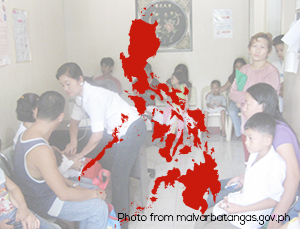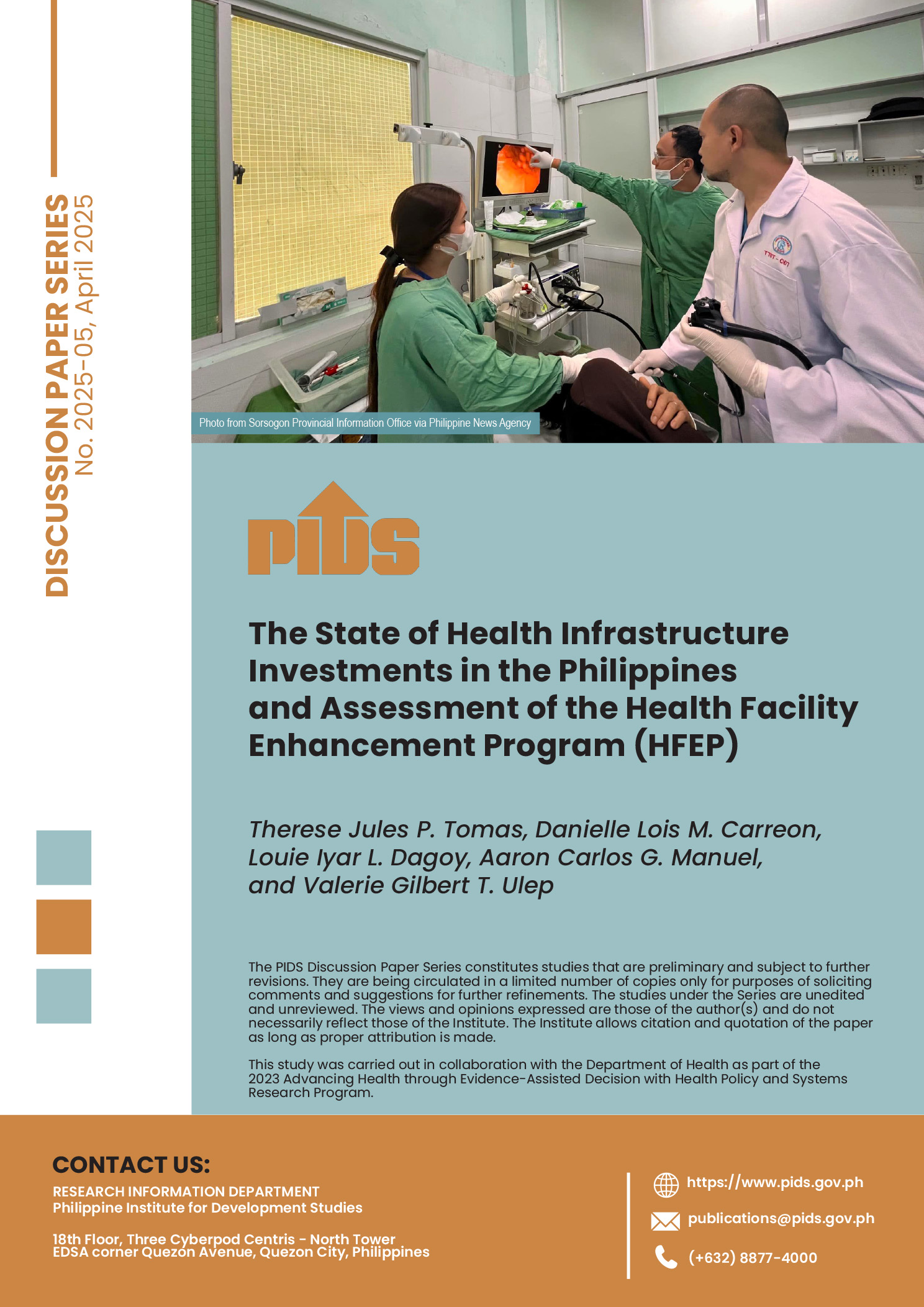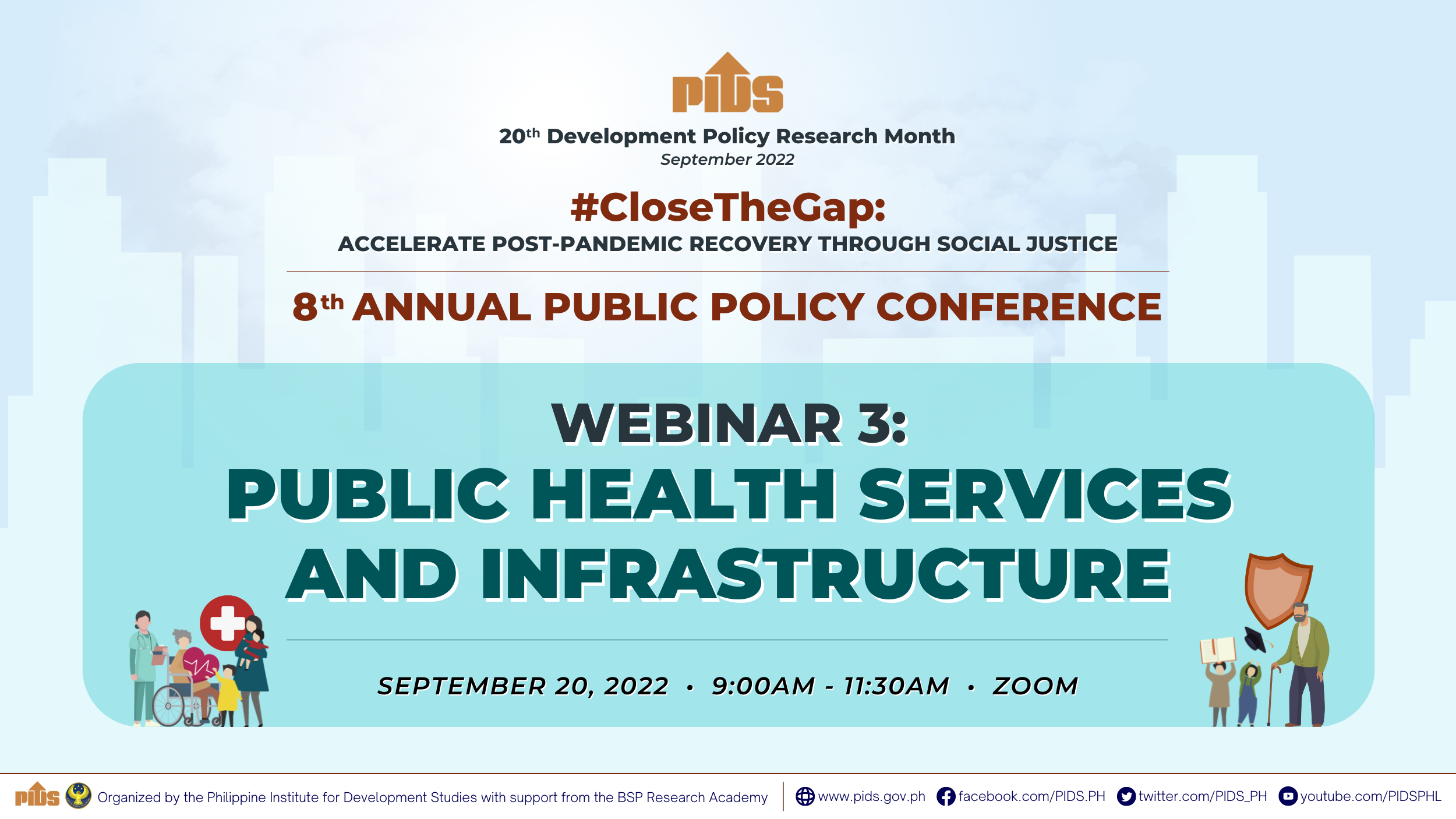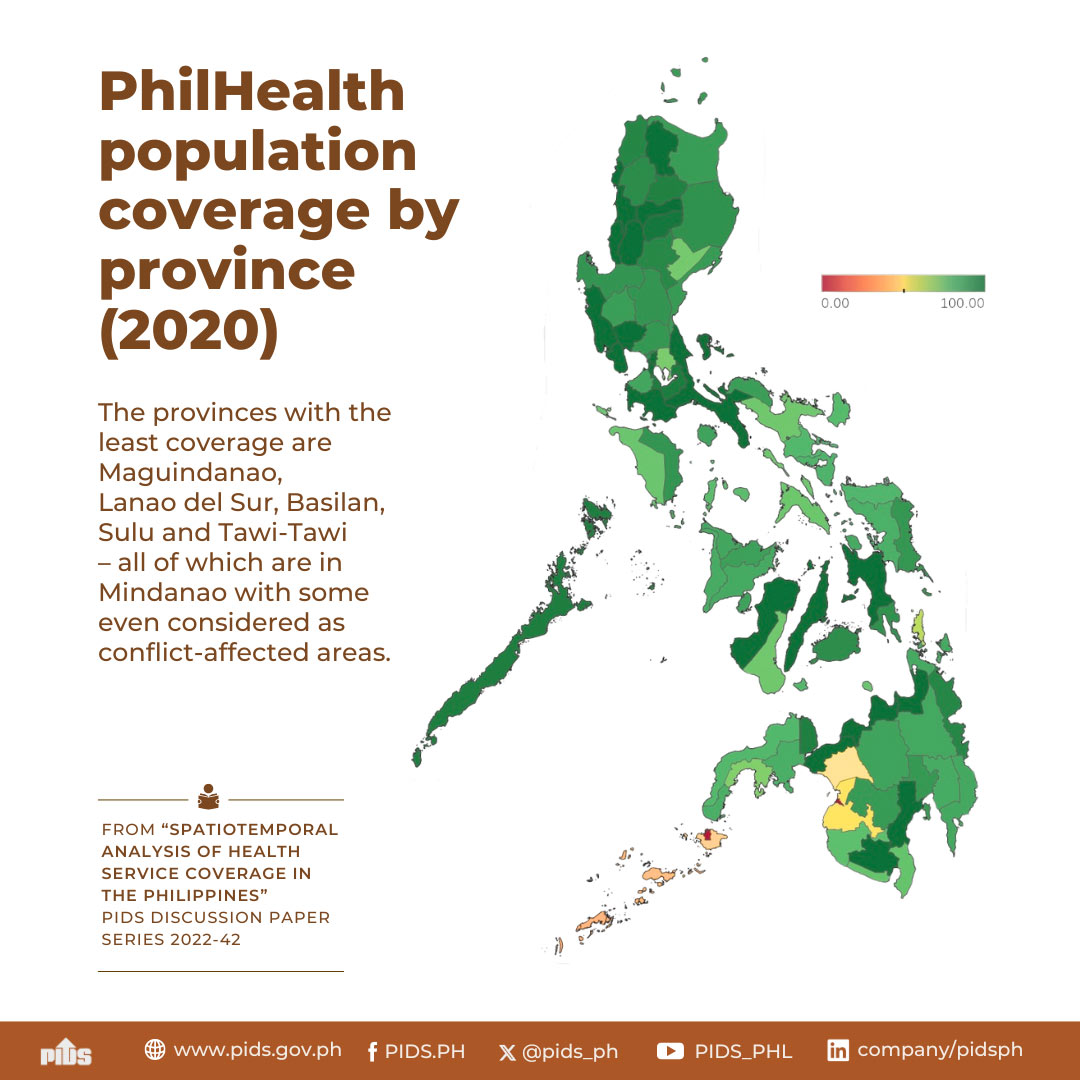
Studies on health decentralization released by state think tank Philippine Institute for Development Studies (PIDS) found major issues in the policy's design and implementation. The author, PIDS Supervising Research Specialist Janet Cuenca, discussed these at a recent webinar jointly organized by PIDS and the United Nations Economic and Social Commission for Asia and the Pacific.
In her first study, Cuenca examined the effect of health devolution on hospital inpatient services in 54 provinces, including their component cities and municipalities.
Results showed a decline in the level of hospital inpatient services between 2006 and 2013. Cuenca explained that this is due to the inadequate budget of local government units (LGUs) for maintaining and upgrading devolved health facilities.
Under the Local Government Code of 1991, health services are devolved to LGUs, giving them greater responsibility to provide health services to their constituents and to operate and maintain health facilities such as district hospitals and rural health units.
Health devolution was supposed to increase LGU spending on healthcare delivery services to achieve better health outcomes. However, this has not been the case in most LGUs in the country.
The share of health spending in the internal revenue allotment (IRA) of many LGUs is insufficient to finance the operations of devolved hospitals, pay the salaries of health workers, and procure hospital beds and other health supplies.
Given their limited funds, LGUs tend to spend less on maintaining hospitals and rely more on the national government’s financial assistance such as the Health Facilities Enhancement Program (HFEP) of the Department of the Health.
The HFEP is intended to “upgrade barangay health stations, rural health units, government hospitals and health facilities in provinces” and “provide trainings to health professionals with the end in view of improving access to quality health care".
Moreover, the DOH subsidizes vertical programs such as the Expanded Program in Immunization, the control of infectious or communicable diseases, and the deployment of human resources for health in the LGUs. All of these are allowed under Section 17(f) of the Code.
However, “increasing [the] share of DOH spending at the provincial level certainly diminishes the health expenditure decentralization ratio, and in practical terms, it weakens health devolution,” Cuenca pointed out.
She explained that such provision “encourages the existence of a two-track delivery system, which creates confusion, weakens accountability between levels of government, and promotes inefficiencies in the health system”.
Cuenca reiterated these observations in her second study, which assessed the effect of fiscal decentralization on the efficiency of local government health spending.
She noted that the mismatch between local governments’ fiscal capacity and devolved functions, the fragmentation of the health system, and the unclear expenditure assignments between the national and local levels have led to inefficiencies in the delivery of health services in LGUs.
To resolve these issues and fully reap the benefits of health devolution, Cuenca proposed some recommendations.
One is to review and amend the taxing powers of provinces. Cuenca explained that “provinces have weak taxing power but at the same time, they have the immense responsibility of maintaining and operating provincial hospitals, which is associated with huge financial requirement.”
Another is to revisit and revise the IRA distribution formula to address the long-standing issue of mismatch between the cost of devolved health facilities (especially hospitals) and available resources in LGUs. In its recent ruling, the Supreme Court held that the IRA share of LGUs would be computed based on all national government tax revenues. The Court decision is expected to take effect in 2022.
Cuenca also stressed the need for LGUs to have sound financial resource bases or the capacity to generate revenues to sustain the health needs of their constituents.
To improve efficiency in LGU health spending, she urged the government to revisit Sections 17 (c) and 17(f) of the Code to clarify the levels of accountability and expenditure assignments between national and local levels. ###
In her first study, Cuenca examined the effect of health devolution on hospital inpatient services in 54 provinces, including their component cities and municipalities.
Results showed a decline in the level of hospital inpatient services between 2006 and 2013. Cuenca explained that this is due to the inadequate budget of local government units (LGUs) for maintaining and upgrading devolved health facilities.
Under the Local Government Code of 1991, health services are devolved to LGUs, giving them greater responsibility to provide health services to their constituents and to operate and maintain health facilities such as district hospitals and rural health units.
Health devolution was supposed to increase LGU spending on healthcare delivery services to achieve better health outcomes. However, this has not been the case in most LGUs in the country.
The share of health spending in the internal revenue allotment (IRA) of many LGUs is insufficient to finance the operations of devolved hospitals, pay the salaries of health workers, and procure hospital beds and other health supplies.
Given their limited funds, LGUs tend to spend less on maintaining hospitals and rely more on the national government’s financial assistance such as the Health Facilities Enhancement Program (HFEP) of the Department of the Health.
The HFEP is intended to “upgrade barangay health stations, rural health units, government hospitals and health facilities in provinces” and “provide trainings to health professionals with the end in view of improving access to quality health care".
Moreover, the DOH subsidizes vertical programs such as the Expanded Program in Immunization, the control of infectious or communicable diseases, and the deployment of human resources for health in the LGUs. All of these are allowed under Section 17(f) of the Code.
However, “increasing [the] share of DOH spending at the provincial level certainly diminishes the health expenditure decentralization ratio, and in practical terms, it weakens health devolution,” Cuenca pointed out.
She explained that such provision “encourages the existence of a two-track delivery system, which creates confusion, weakens accountability between levels of government, and promotes inefficiencies in the health system”.
Cuenca reiterated these observations in her second study, which assessed the effect of fiscal decentralization on the efficiency of local government health spending.
She noted that the mismatch between local governments’ fiscal capacity and devolved functions, the fragmentation of the health system, and the unclear expenditure assignments between the national and local levels have led to inefficiencies in the delivery of health services in LGUs.
To resolve these issues and fully reap the benefits of health devolution, Cuenca proposed some recommendations.
One is to review and amend the taxing powers of provinces. Cuenca explained that “provinces have weak taxing power but at the same time, they have the immense responsibility of maintaining and operating provincial hospitals, which is associated with huge financial requirement.”
Another is to revisit and revise the IRA distribution formula to address the long-standing issue of mismatch between the cost of devolved health facilities (especially hospitals) and available resources in LGUs. In its recent ruling, the Supreme Court held that the IRA share of LGUs would be computed based on all national government tax revenues. The Court decision is expected to take effect in 2022.
Cuenca also stressed the need for LGUs to have sound financial resource bases or the capacity to generate revenues to sustain the health needs of their constituents.
To improve efficiency in LGU health spending, she urged the government to revisit Sections 17 (c) and 17(f) of the Code to clarify the levels of accountability and expenditure assignments between national and local levels. ###












